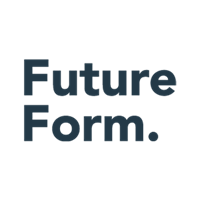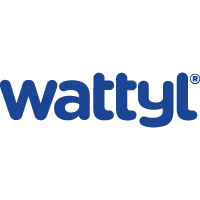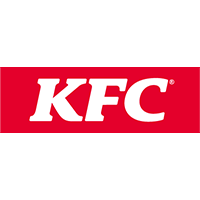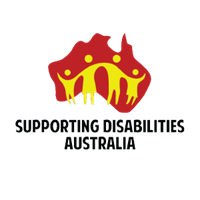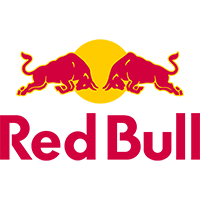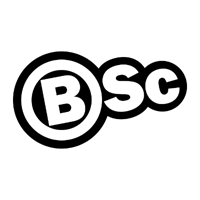
Bred not bought – that is the renewed approach Canterbury are taking to developing its next crop of playmakers the Club is hoping will prop up its future success in the NRL.
Quality halves a scarce commodity in rugby league, so the Bulldogs have decided to nurture their own.
Twelve months ago Canterbury supremo Phil Gould created a ‘halves Academy’, to develop every playmaker at the club from Harold Matthews (under-17) through to NRL level.
Bulldogs General Manager of Pathways Adam Hartigan said up to 14 players receive specialist coaching through the program designed by Gould.
“It’s an extra to our Academy program. Gus (Gould) runs our halves Academy,” Hartigan said.
“Gus will present, they’ll talk through different scenarios. It’s something he has done before.
“Halves development is critical to future of the Club and game. We want to make sure our halves know what is expected from them coming through the grades and how to handle all the pressure of getting into the NRL.
“We run it outside of their team training, some of it is theory work, some of it is on field and some of it is just spending time together, going through scenarios. It’s strengthening their understanding and cohesion. We will be making it a priority.”
PATHWAYS PROGRESS
The ‘bred, not bought’ philosophy is not new to Canterbury. The slogan featured on banners at games during 2004, the last time the Bulldogs won a title. From that grand final team 12 players debuted at the club.

But the Bulldogs are under no illusions at how difficult it is to repeat a similar feat.
Geographically, Canterbury is boxed in by Cronulla to the south and by junior league powerhouses Parramatta and Penrith to the west.
By comparison, Canterbury-Bankstown junior rugby league district is home to 3300 registered players, while Parramatta has 5700 participants and Penrith boasts around 9000.
So when Gould got to Belmore in late 2019, rebuilding the Club’s pathways was at the top of the agenda.
As well investing heavily into the club’s Sydney nursery the club spread its footprint regionally into northern NSW in 2018.
More recently into south east Queensland and New Zealand, where Gould was a consultant at the Warriors with a focus on junior pathways before joining Canterbury.
“We’re a development Club, we have some really talented local juniors. But our junior league is probably not big enough to sustain a production line of players to go through into the NRL. We’ve had to supplement around that,” Hartigan said.
“We’ve got a program that runs on the north coast of NSW, a program that runs in Greater Northern NSW. We have an affiliation with the Western Clydesdales in Toowoomba.
“We’ve got the Academy hubs in Auckland, where we have six contracted kids between the ages of 15 and 17, and Christchurch but that is in its infancy.
“The idea is that if we identify a player in those areas, we‘ll put time into getting the coaching they need so they don’t have to leave home until they need to for their next stages of their development.”
HALVES ACADEMY
Just last week, Canterbury ‘supplemented’ the Club’s halves stocks by luring rising halfback Alex Conti from the Wests Tigers.
The 17-year-old will receive specialist hands on coaching as part of the halves academy alongside the likes of Mitchell Woods and Bronson Reuben, the local junior halves duo that led Canterbury to the title in the Harold Matthews Cup this year.

“That (halves Academy) was a big sell for Alex and his manager Braith Anasta. We’ve got some very talented kids like Mitchell Woods and Bronson Reuben, who were our halves pairing in Harold Matts, both are on contract this year. They’ll be in the same squad as Alex Conti,” Hartigan said.
“We’ve got Joseph Teaupa, he’s already played more Flegg and Ron Massey Cup games in 2023 than SG Ball, yet still eligible for SG Ball in 2024.
“Some will go on to play NRL here at the Bulldogs, that’s great for us but the development we want to do is imperative for us and the game, long term.”
At NRL level, Canterbury’s halves problems are no secret. Last season alone, coach Cameron Ciraldo cycled through the likes of Kyle Flanagan, Karl Oloapu, Toby Sexton and Josh Reynolds.

The Club’s halves Academy is seen as a solution to the side’s halves woes over the long-term.
“We feel what we are doing to do well over the next few years is developing halves,” Hartigan said.
FRONT ROW DEVELOPMENT
Canterbury’s top-30 roster features two local junior forwards. With the likes of Franklin Pele, Luke Thompson and Tevita Pangai Junior having departed the Club at the end of the 2023 season, there is a hole in the side's engine room.
While the immediate fix is recruitment, a new crop of forwards from within the Club will push for selection as soon as 2024.
“They’ll be working with Mark O’Meley and the coaches in the pre-season. What we do with the halves, front rower wise we will do the same with Ogre,” Hartigan said.
“We’ve identified a couple from Jersey Flegg who are going to go through and train with the NRL side in the pre-season – Jack Todd, Lipoi Hopoi and Zac Montgomery were our three main front rowers in the Flegg competition in the back end of the year.
“Damon Marshall is from Townsville, he started in SG Ball and by the end of the year he had played every other grade plus under 19’s for Queensland.

“Jack Underhill relocated from the Sunny Coast, we see something in him. Fanafou Seve is a local junior, he’ll play SG Ball again next year and he’s played Flegg already. He should have been in the Australian Schoolboys conversation but hurt his knee. His younger brother, Itula Seve had a great year in our Harold Matts program, and will back up in that team again this year.
“Mohamed Hadid is a local boy from Greenacre, David Leota and Oliva Smith are from Queensland and will relocate after school this year.”
EARLY SUCCESS
Already, Canterbury’s commitment to junior development is reaping rewards. Both the Harold Matthews Cup and Jersey Flegg (under-21) sides took out the title in their respective competitions.

Ten players from the under 17s outfit were local juniors, while 12 from the Flegg side have been developed at Belmore.
“If we can develop players from within, they want to be Bulldogs, they want to play for the Bulldogs, they want to win for the Bulldogs. So teaching them at a young age what it means to play for the club is important,” Hartigan said.
“If you don’t do it, where’s the next crop coming from?”

NO WORK, NO PLAY
In a bid to instil the right work ethic and create a sense of professionalism, the Club’s rising stars are expected to have a job or be studying while in the pathways program.
If not, players are expected to report for gym sessions at 5am.
“If you don’t have a job you’re in at 5am,” Hartigan said.
“We’re implementing that ‘no work, no study, no play’ approach.
“12 months ago our Harold Matts did weights at a junior league facility. We wanted to increase the professionalism of that, so we bought them in house to Belmore.
“That allows for the head coach and high performance to have visibility over them so there’s a sense of connection there. That has increased our players‘ professionalism and desire to play for the Club because they feel a part of it.
“Everyone is under one roof at the moment.”
BREAKOUT STARS
It might be years before the club will bear the fruits of its pathways but one local junior is edging closer to an NRL debut.

“Joash Papalii is a talented kid. He’s featured more at fullback but I see him as having the ability to not play at fullback but at five-eighth or hooker if needed,” Hartigan said.
“He could be a very good utility for us. He’s very skilful, quick off the mark. He was still eligible for SG Ball this year, but when he trained with the NRL side Ciraldo made the decision that he stayed with the NRL, that’s a huge vote of confidence. That’s why he started in reserve grade last year.
TEAM EFFORT
While Gould might be the face of Canterbury’s pathways rebuild, the Club had invested heavily in ensuring the right people are in place throughout the entire program.
In recruitment, the likes of Fifita Hala, Dave Hamilton and Craig Wilson have been doing crucial work to identify the right talent. Hala, a former Tigers recruiter, helped lure Conti to Belmore.
Gurpreet Singh was appointed as Head of Conditioning for Pathways, having previously been at Cronulla and the NSWRL. Shane Millard played a critical role in the development of the coaches and players, which has resulted in him taking up a role with the St George Illawarra Dragons as the Recruitment and Pathways manager.
Coaches who have contributed to the success of this program include former lower grades player, Luke Vella who was tragically injured as a player, leading his path into coaching. Josh Jackson also played an important role in the development of the individuals, and teaching them to be Bulldogs.

Shannon Rushworth the successful Harold Matthews coach is originally from Christchurch and relocated for a coaching opportunity. Even assistant football operations manager Paul Arraj plays a crucial role.
“The program itself boasts a host of talented individuals who contribute to the success of our pathways program, it would be too hard to identify everyone in this conversation, but everyone plays an important role, and the players are aware of that.”
“This really is a team effort and a lot of people are doing great work behind the scenes to ensure we get this right. It is the development approach, Gus always says that it is the only way he knows how” Hartigan said.

COACH CIRALDO
The importance of strong pathways is not lost on Ciraldo. During his time at Penrith as the under-20s coach, Ciraldo helped nurture Nathan Cleary, Dylan Edwards, James Fisher-Harris, Moses Leota, Jarome Luai and Liam Martin into the first grade. The same players that have been the driving force behind Penrith’s three-peat.
“He is very invested in the Club’s holistic approach to developing from within,” Hartigan said.
“He has his suggestions about the way we do things. He’ll ring me to see how a certain player has performed. How they might have handled going back to a lower grade after training with the NRL side. There are conversations every day about who is going to contribute to the Club moving forward.”
Article courtesy of Fatima Kdouh, The Daily Telegraph. Originally published as NRL 2023: How the rebuild of Canterbury’s junior pathways will return the Bulldogs to its glory days.






